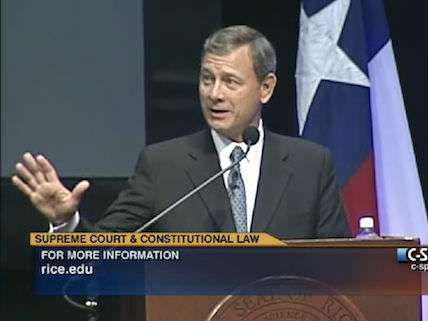Supreme Court Rules for Federal Whistleblower in Homeland Security Case
In 2003 a federal air marshall named Robert J. MacLean alerted a reporter at MSNBC about the Transportation Security Administration's (TSA) cost-cutting decision to remove all air marshals from overnight flights originating in Las Vegas. In MacLean's view, this policy put the public at risk. So he blew the whistle on it. In response to the negative public attention attracted by MacLean's disclosure, the TSA later reversed the policy. A few years after that, MacLean's identity as the whistleblower was discovered and the TSA terminated his employment.
In a 7-2 decision issued today, the U.S. Supreme Court ruled in the whistleblower's favor. At issue in Department of Homeland Security v. MacLean is the section of the 2002 Homeland Security Act which provides whistleblower protections to federal employees who disclose "any violation of any law, rule, or regulation," or "a substantial and specific danger to public health or safety," so long as the disclosure is not "specifically prohibited by law."

Writing for a majority that included Justices Antonin Scalia, Clarence Thomas, Ruth Bader Ginsburg, Stephen Breyer, and Elena Kagan, Chief Justice John Roberts rejected the Obama administration's claim that while MacLean's actions may not have been spelled out in federal law, they were nonetheless fully covered (and therefore forbidden) by TSA rules and regulations. "The question here is whether a disclosure that is specifically prohibited by regulation is also 'specifically prohibited by law,'" Roberts wrote. "The answer is no."
What's more, Roberts explained, under the government's flawed theory of the case, federal agencies could effectively overwrite the specific rules that Congress has placed on them:
[A] broad interpretation of the word "law" could defeat the purpose of the whistleblower statute. If "law" included agency rules and regulations, then an agency could insulate itself from the scope of [the Homeland Security Act] merely by promulgating a regulation that "specifically prohibited" whistleblowing. But Congress passed the whistleblower statute precisely because it did not trust agencies to regulate whistleblowers within their ranks.
Writing in dissent, Justice Sonia Sotomayor, joined by Justice Anthony Kennedy, took the opposite view, claiming that today's decision grants far too much leeway to would-be whistleblowers within the ranks of the federal government. "The Court has left important decisions regarding the disclosure of critical information completely to the whims of individual employees," Sotomayor complained.
The Supreme Court's decision in Department of Homeland Security v. MacLean is available here.


Show Comments (20)